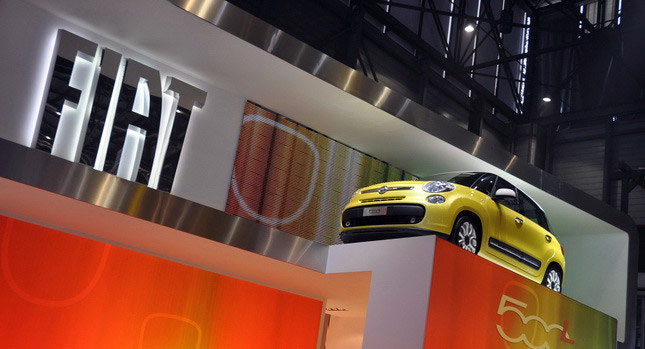All mainstream European carmakers are, to a higher or lower degree, facing problems due to the debt crisis that’s storming the continent.
Ford has started closing down plants, Opel and Peugeot are burning cash each day for the past eight months while they try to figure out how to work on their partnership and, as for Fiat… well, thank God that Chrysler is profitable.
The sole survivor in this mess seems to be the VW Group that’s still very profitable, much to the annoyance of its rivals and especially Marchionne who accused Wolfsburg of not playing by the book. However, even the mighty VW has been forced to trim its estimates, as the crisis begins to knock on Germany’s door.
Joint ventures look like the best way to get through this crisis with less casualties as possible. That’s why Fiat CEO Sergio Marchionne has been talking to everyone and anyone, from Peugeot and Opel to Volvo, Suzuki and Mazda.
Despite being shunned by GM and PSA Peugeot Citroen when he asked to join their alliance last February, Marchionne does not hold a grudge against them. In fact, according to Bloomberg, the outspoken head of the Fiat Chrysler Group has approached both companies again to discuss a possible tie-up.
The news agency’s source said that Marchionne’s proposal is for the French to participate in a new group comprised of Opel and Fiat in exchange for stock in the new entity.
Two other sources have added that the 60-year old Italian, who has been the head of Fiat for the past eight years, is also willing to buy Opel out of GM’s hands if he received between US$5-7 billion to restructure the German automaker.
If such a deal did materialize, it would create a mega-group equal to VW in Europe: the three carmakers’ combined sales account for 25 percent of market share, a smidge higher than VW’s 24.8 percent.
Representatives of all three carmakers declined to comment.
Even if GM’s Dan Akerson, who is hell-bent on turning Opel around and PSA Peugeot Citroen, which recently received a €7 billion (US$9.1 billion) aid in the form of bond guarantees, were to agree in principle to Marchionne’s plan, there are many issues that would need to be resolved before going forward.
First of all, GM already has a troubled past with Fiat when the two were “engaged” to be “married” in 2009 but then broke up. In addition, Bloomberg’s sources say the French aren’t willing to get in bed with the Italians because the latter are exposed to Italy, Spain and France and will provide little technology into the proposed new group.
Things get even more complicated by the aforementioned loan that will strain both the government and labor representatives of PSA’s board.
To sum it up, it sure sounds like a very interesting idea and Marchionne is right in saying that creating very large groups, and thus achieving economies of scale, are one way to survive what, in his own words, is a “bloodbath” in Europe.
On the other hand, the two other parties are recalcitrant to enter into such an alliance. Could it be because they believe they can go it alone without the Italians dragging them down?
Guess we’ll have to wait and see, but in such a volatile climate, and with the European new-car market set to post its worst results in the last 19 years, nothing is off the table.
By Andrew Tsaousis
PHOTO GALLERY










